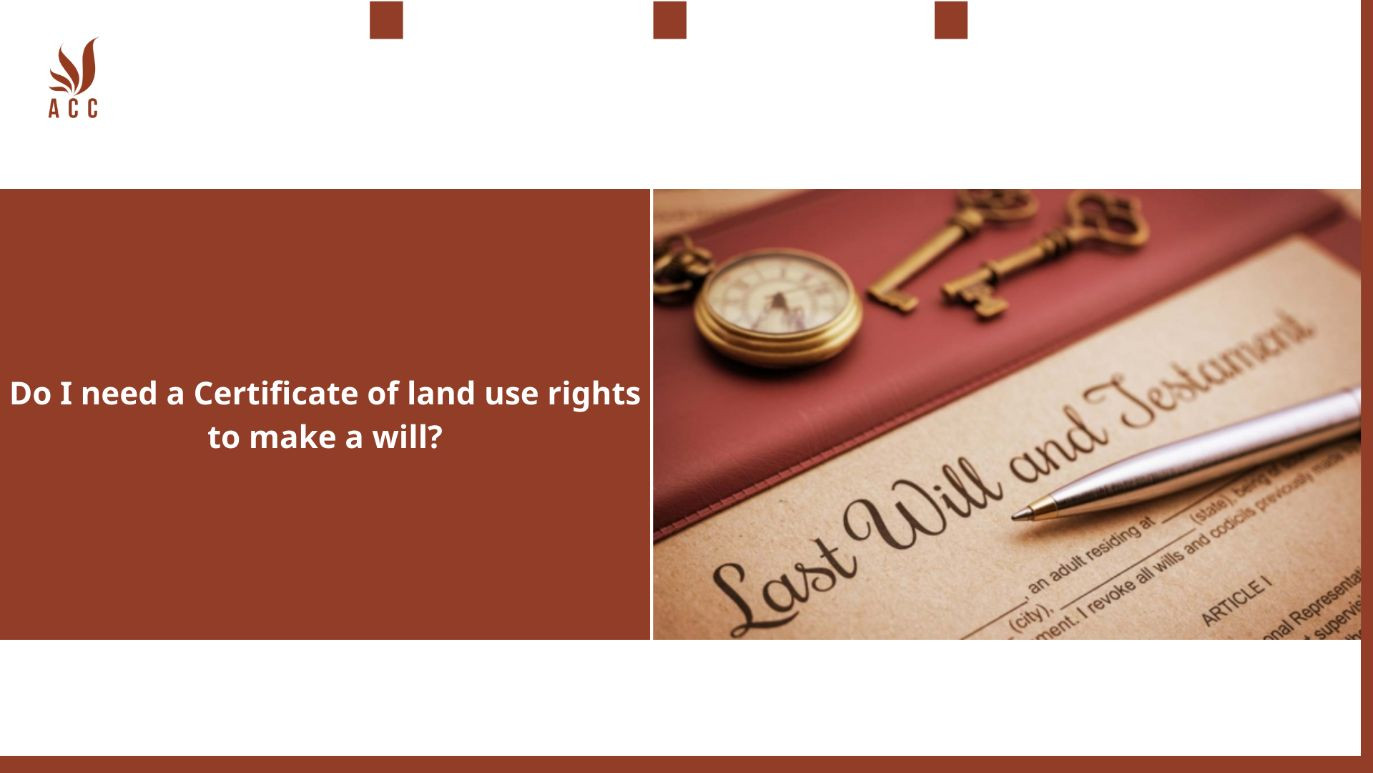In many cases, having a Certificate of Land Use Rights (CLU) can be beneficial when making a will that involves land or property. However, whether it's absolutely necessary depends on the specific laws and regulations in your jurisdiction. Here are some considerations:

1. Legal Requirements:
In some regions, having a CLU or other proof of land ownership may be a legal requirement for including land or property in your will. Local laws can vary significantly, so it's essential to consult with a legal professional in your area to understand the specific requirements.
2. Evidence of Ownership:
A CLU serves as evidence of your legal rights to the land. If you have a CLU, it can help establish your ownership and provide clarity in your will regarding the property you wish to bequeath.
3. Avoiding Disputes:
Including a CLU or clear proof of land ownership in your will can help prevent disputes or challenges to the property's ownership after your passing. It provides a stronger legal foundation for your bequests.
4. Transfer of Property:
When a will involves the transfer of real estate or land, the legal documentation supporting your ownership is crucial. The absence of proper documentation can complicate the execution of your wishes.
5. Local Practices:
Local customs and practices may also play a role. In some regions, it may be standard practice to include land-related documents in a will to ensure clarity and enforceability.
6. Legal Advice:
To determine whether a CLU or specific land-related documents are required or recommended for your will, it's advisable to consult with an experienced estate planning attorney who is familiar with the laws and practices in your jurisdiction.
7. When using ACC Law Firm's testament, entrepreneurs will receive
8. Q&a
Is it necessary to have a Certificate of Land Use Rights to make a will for land?
In many jurisdictions, having a Certificate of Land Use Rights is not a strict legal requirement to make a will for land. While having such a certificate can provide clarity and simplify the process, it is not always necessary to create a valid will that includes land.
What documentation can be used in the absence of a Certificate of Land Use Rights?
In the absence of a Certificate of Land Use Rights, you can use alternative documentation to describe and prove ownership of the land in your will. This may include:
Land deeds or titles.
Property tax records.
Land surveys or maps.
Any legal documents that establish your ownership or rights to the land.
Is it advisable to seek legal assistance when making a will involving land without a Certificate of Land Use Rights?
Yes, it is advisable to seek legal assistance when making a will involving land, especially if you do not have a Certificate of Land Use Rights. An attorney experienced in real estate and estate planning can help ensure that your will complies with local laws, accurately describes the land, and provides clear instructions for its inheritance. Legal guidance can also help prevent potential challenges or disputes regarding the land's ownership.
What steps can be taken to strengthen the validity of a will for land without proper documentation?
To strengthen the validity of a will for land without proper documentation like a Certificate of Land Use Rights, consider these steps:
Consult with an attorney: Seek legal advice to ensure that the will is properly drafted and complies with local laws.
Gather all available documentation: Collect any relevant records or documents that provide information about the land's ownership or rights.
Be specific and clear: Clearly describe the land's location, boundaries, and any unique features in the will.
Communicate with beneficiaries: Inform your chosen beneficiaries about the will and your intentions for the land to reduce the likelihood of disputes.
Nội dung bài viết:






Bình luận